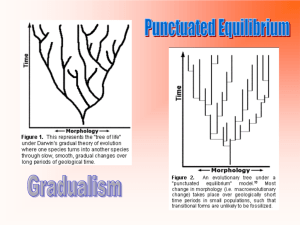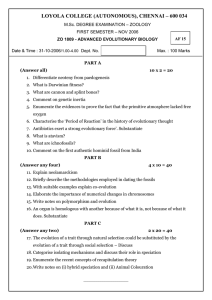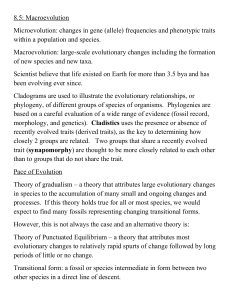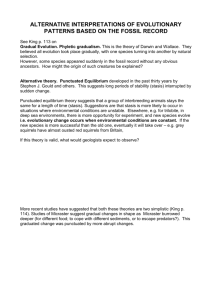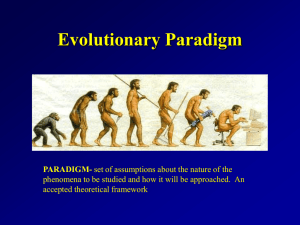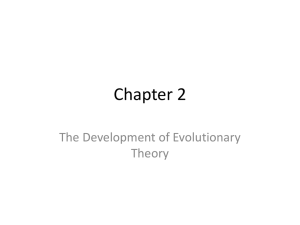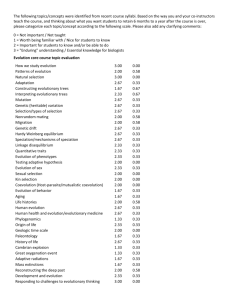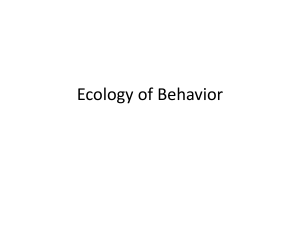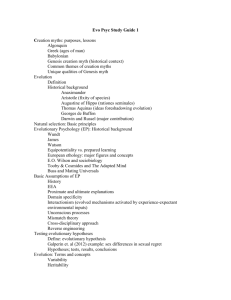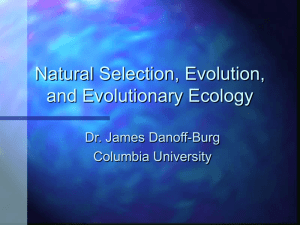“The Evolution of Evolution”: Key Terms & Concepts Fixity – fixed
advertisement
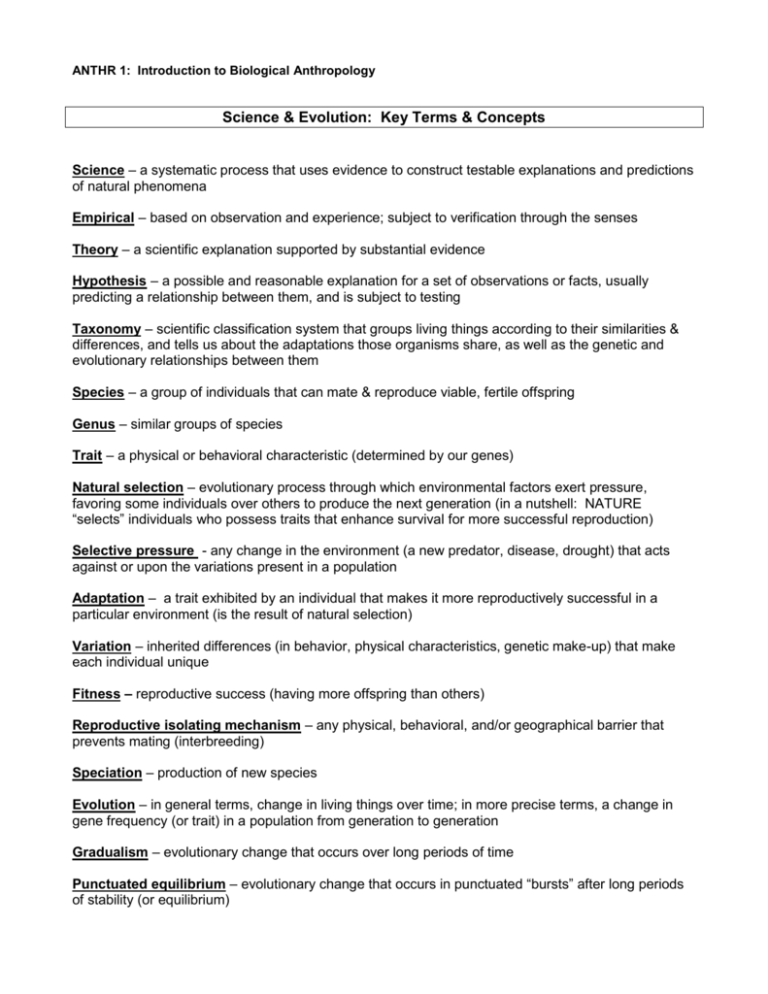
ANTHR 1: Introduction to Biological Anthropology Science & Evolution: Key Terms & Concepts Science – a systematic process that uses evidence to construct testable explanations and predictions of natural phenomena Empirical – based on observation and experience; subject to verification through the senses Theory – a scientific explanation supported by substantial evidence Hypothesis – a possible and reasonable explanation for a set of observations or facts, usually predicting a relationship between them, and is subject to testing Taxonomy – scientific classification system that groups living things according to their similarities & differences, and tells us about the adaptations those organisms share, as well as the genetic and evolutionary relationships between them Species – a group of individuals that can mate & reproduce viable, fertile offspring Genus – similar groups of species Trait – a physical or behavioral characteristic (determined by our genes) Natural selection – evolutionary process through which environmental factors exert pressure, favoring some individuals over others to produce the next generation (in a nutshell: NATURE “selects” individuals who possess traits that enhance survival for more successful reproduction) Selective pressure - any change in the environment (a new predator, disease, drought) that acts against or upon the variations present in a population Adaptation – a trait exhibited by an individual that makes it more reproductively successful in a particular environment (is the result of natural selection) Variation – inherited differences (in behavior, physical characteristics, genetic make-up) that make each individual unique Fitness – reproductive success (having more offspring than others) Reproductive isolating mechanism – any physical, behavioral, and/or geographical barrier that prevents mating (interbreeding) Speciation – production of new species Evolution – in general terms, change in living things over time; in more precise terms, a change in gene frequency (or trait) in a population from generation to generation Gradualism – evolutionary change that occurs over long periods of time Punctuated equilibrium – evolutionary change that occurs in punctuated “bursts” after long periods of stability (or equilibrium)
